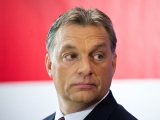Hungary's Media Law - Tip of the Iceberg
18 Jan 2011
By Jeremy Druker for ISN
Within a matter of weeks, Hungary's image on the international scene has plummeted, as critics far and wide have decried the new law's creation of a media control body that can set exorbitant fines for "imbalanced news coverage" and similarly vaguely defined violations of public morality. The law is the latest in a line of moves that have been criticized for their undemocratic nature, including parliament's plans to curb the powers of the Constitutional Court after a clash over a new tax measure. All the unwanted attention came as the country assumed the EU's rotating presidency at the beginning of this month.
Understanding Fidesz' worldview
Many have questioned why the Hungarian government decided not to wait until after the presidency to pass such a law that would still have generated recrimination, but far less with Budapest out of the limelight. That puzzlement, however, ignores the nature of the current ruling class and their worldview following the massive victory of the right-wing Fidesz in parliamentary elections in April 2010.
Soon after their victory, the new Hungarian authorities ordered many public buildings to display a proclamation that declared, among other things: "In spring 2010, the Hungarian nation gathered its strength once again, and brought about a successful revolution in the polling booth." For the party and its supporters, the voters' decision to hand Fidesz a two-thirds majority in parliament was a call to redress the wrongs of the past 20 years, finally rid the country of ex-communists and liberal leftists and remake the country in their image.
Even his critics see Prime Minister Viktor Orban as fit for this kind of role, a mix of a zealous revolutionary and a pragmatic, political player intent on retaining power as long as possible.
"Orban is a very complicated personality," says Istvan Hegedus, chairman of the Hungarian Europe Society, a Hungarian NGO that has issued statements warning that the government's actions could lead to the country's becoming the EU's enfant terrible. "But he is a revolutionary guy and has been looking for such power for years. He sees this as a historic opportunity and thinks that he has a chance to push things through in the first year."
In and out of parliament and government since 1989, with humiliating defeats and exhilarating resurrections, Orban and Fidesz know this chance may not come along again soon and could quickly evaporate if the economy doesn't emerge from its nosedive. As a result, they apparently plan to push through the transformation as quickly as possible to pre-empt any significant backlash. And despite the current international criticism, plans include changing the constitution - in April, still during the EU presidency - to help ensure that any new government will have difficulty rolling back their "revolution".
A responsive electorate
Despite international criticism, Fidesz' mentality resonates with the electorate, and many Hungarians see Orban in almost messianic terms. One might assume that Fidesz' potent blend of nationalist populism plays well just with the less-educated and parochial, those unable to adjust to the modern economy and pining for a return to Hungary's past glories. However, in contrast to similar political movements elsewhere in Central Europe, Fidesz has a considerable chunk of the upwardly mobile, middle and upper classes behind it.
"Orban does express a strong authoritarian streak, which has always gone down quite well with a lot of people, including large sections of the middle classes here - some of whom are very reactionary," says Balint Szlanko, a Hungarian journalist and former correspondent in Brussels.
The economic crisis, which has hit Hungary particularly hard, only deepened disgust with the left, particularly the Socialists that had ruled in the country for the previous eight years (former Prime Minister Ferenc Gyurcsany famously admitted lying for years about the economic situation in order to get reelected). "Obviously, it has a lot to do with the runaway corruption, too," says Szlanko, "So when Orban says things like the invisible hand of the market is really the hand of the thief - well, that strikes a chord with a lot of people."
Hegedus agrees. "Market economy, liberal democracy, multinational companies have become ugly words," he says. "There is a long history of divisions among the political and cultural elites. But over the past 10 years, the divisions have sharpened more and spread down into normal people and ordinary families." He said part of the eternal debate concerns who is "loyal" to the nation and who is not.
Miklos Haraszti - a Hungarian writer and professor, who served as the OSCE's representative on freedom of the media - said that the bitter nature of public life also stemmed from the declining interest of the mature Western democracies to guide their younger counterparts.
"When there is no super-ego anymore above a small Central European new democracy, then politicking, getting power, and collecting votes by whatever means is becoming identical with the art of politics," Haraszti said. "The freedom to disagree is not balanced by older democracies' culture of the common denominator during the fights."
While driven by their overriding desire to move quickly, the Hungarians do appear to have miscalculated, as well. They seem to have thought that the presidency would somehow shield them from reproach, either assuming that no one would dare question the quality of democracy of the country holding the rotating chairmanship or that critics would simply focus on Hungary's leadership and not its domestic policy.
"Orban believed the EU presidency would work as a smokescreen, not a magnifying glass," says Haraszti, who testified recently to the European Parliament about the media law. "He was largely right about this regarding his authoritarian 'revolution', but he missed the fact that journalists like to report about the fate of other journalists."
"Still, whatever the outrage in the West, few see that the media package is just the tip of the iceberg of Orban's very far-reaching illiberal, counter-revolution."

